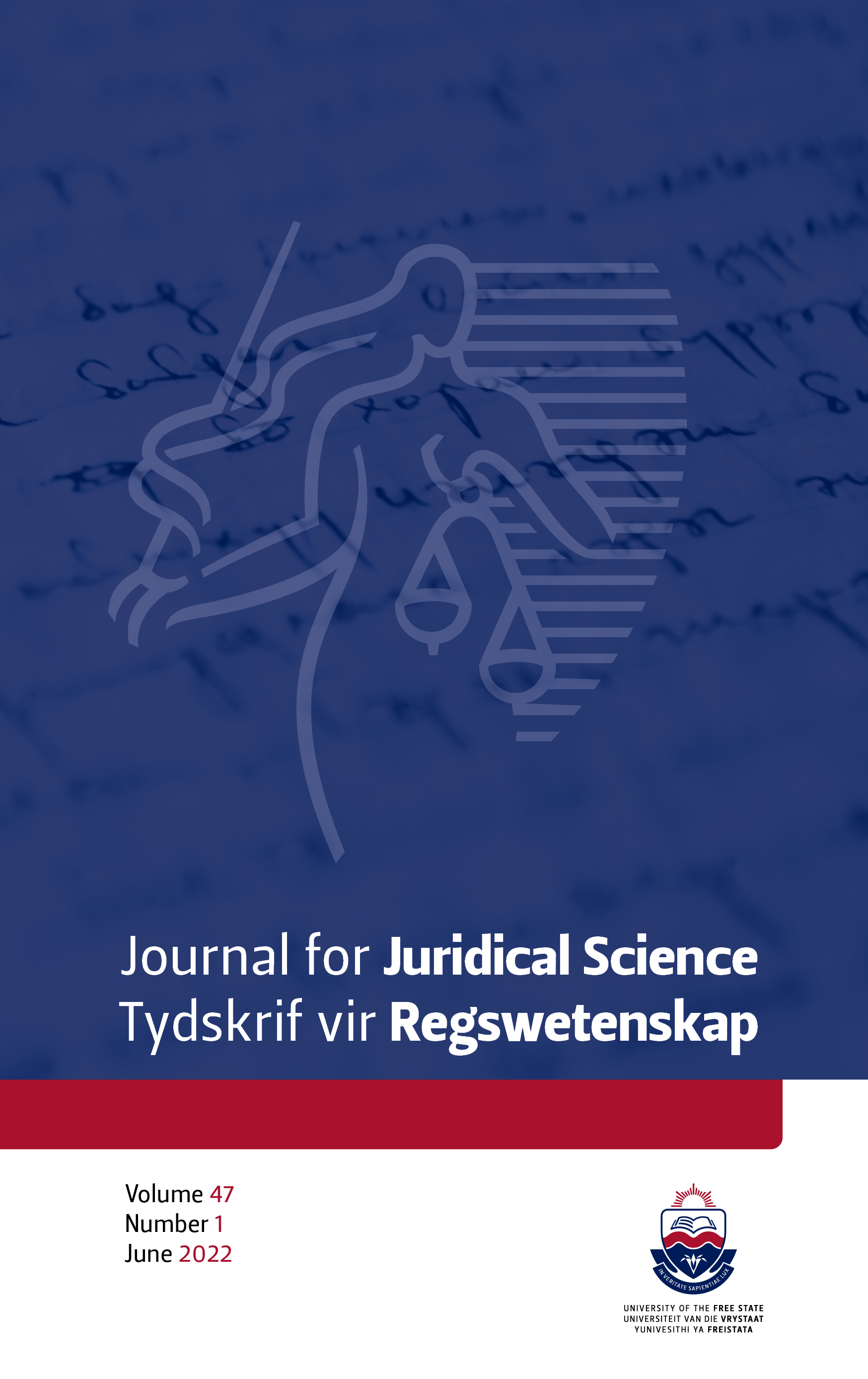Reconsidering corruption as a violation of the rights to equality and non-discrimination based on poverty in South Africa
DOI:
https://doi.org/10.18820/24150517/JJS47.i1.3Abstract
Many international organisations and national institutions such as, for example, the United Nations (UN) Human Rights Council, Transparency International, and the Constitutional Court of South Africa have agreed that corruption has a negative impact on the realisation and enjoyment of human rights. Vulnerable and marginalised groups are disproportionally impacted when it comes to the realisation of their socio-economic rights. This is especially the case where corruption limits access to quality and affordable social services essential for the realisation of rights such as the rights to adequate housing, sanitation, education, and healthcare. This article argues that the criminal law approach, traditionally employed to fight corruption, is not sufficient to address the social harm caused by corrupt acts and omissions. It is argued that a human rights-based approach, grounded in the principles of accountability, empowerment, participation, and non-discrimination, must be employed to provide adequate remedies to the victims of corruption. This article specifically explores the possible violation of the rights to equality and non-discrimination, where corrupt acts or omissions result in limited access to social services for one of the most vulnerable and marginalised groups in society, the poor. This argument is based on the recent judgment by the Equality Court in Social Justice Coalition v Minister of Police 2019 (4) SA 82 (WCC), where the Court found that poverty constitutes an unspecified ground for discrimination, as envisioned by the Promotion of Equality and Prevention of Unfair Discrimination Act 4 of 2000. It is found that the state’s failure to adequately prevent corruption, particularly where corruption results in the limitation of access to quality and affordable social services such as education, housing, and healthcare, that are essential for the realisation of rights, impairs the fundamental human dignity of those living in poverty and adversely affects the realisation of their rights in a comparably serious manner. Thus, under a human rights-based approach, rights holders can hold the state accountable for violating duties, to which they are legally obliged under the human rights framework due to corrupt acts and omissions.
Downloads
##submission.downloads##
Published
Issue
Section
License
Copyright (c) 2022 Author(s)

This work is licensed under a Creative Commons Attribution 4.0 International License.




